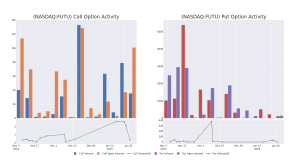
By Pete Schroeder, Nupur Anand
WASHINGTON (Reuters) -The Federal Reserve announced on Tuesday it had terminated a pair of enforcement actions imposed on Wells Fargo in 2011, but said the bank’s asset cap remained in place.
The enforcement actions were related to deficient practices in mortgage servicing and foreclosures by the bank, and mortgage lending at a former subsidiary. The Fed said the asset cap it imposed is not affected by the move.
Wells Fargo CEO Charles Scharf said in a statement that the Fed’s moves show “clear, meaningful progress.”
“Wells Fargo is a different company today, and the resolution of these two longstanding Federal Reserve consent orders is another indication that our team is establishing the right processes and controls to meet our regulators’ and our own expectations,” he added.
The U.S. central bank’s announcement marks the latest advancement by Wells Fargo to get out from under numerous regulatory restrictions following its wide-ranging sales practices scandal.
Those issues and others at the bank compelled the Fed to impose an unprecedented $1.95 trillion asset cap on the lender in 2018, barring its growth until its issues were addressed.
The asset cap is seen as one of the toughest punishments U.S. regulators can put in place, and its removal requires a vote by the Fed’s Board of Governors.
Reuters reported in November that the bank was in the last stages of the process to lift the cap, which could be removed as early as the first half of 2025.
Wells Fargo has seen numerous regulators move to lift enforcement actions in recent months. Last month, the Consumer Financial Protection Bureau closed a 2022 order against the bank over its alleged mishandling of auto loans and mortgages.
Analysts have said the recent developments suggest the bank is on the right path to get its asset cap removed in 2025.
Shares of Wells Fargo surged nearly 43% in 2024, handily outperforming the S&P 500 index and a benchmark for large-cap banks. They were up about 1.5% in midday trading on Tuesday.
(Reporting by Pete Schroeder and Nupur Anand; Editing by Paul Simao)


